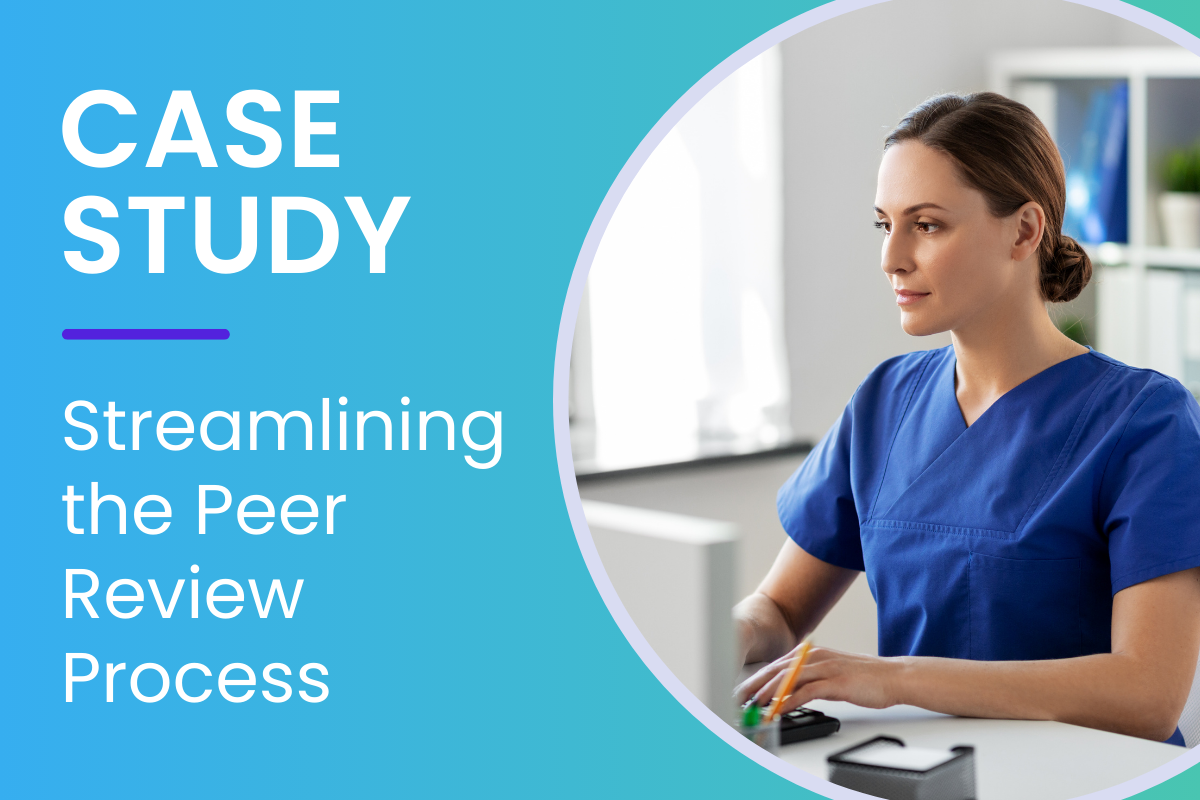4 min read
Streamlining the Clinical Peer Review Process: WCCH's Journey with PHP
Performance Health Partners
November 11, 2024

This case study showcases how West Calcasieu Cameron Hospital revolutionized its clinical peer review and incident reporting processes by implementing Performance Health Partners’ software, leading to dramatic improvements in efficiency, patient safety, and administrative agility. The collaboration not only streamlined operations but also significantly enhanced data-driven decision-making and transparency across the hospital.
Summary
West Calcasieu Cameron Hospital (WCCH), a 107-bed acute care facility located in Sulphur, Louisiana, has been serving the Southwest Louisiana community since 1953. Committed to delivering exceptional healthcare, WCCH provides a range of services including cardiology, surgery, and radiology. The hospital also offers comprehensive breast cancer and diabetes prevention programs and operates three rural health clinics.
Driven by a dedication to continually improve care, WCCH recognized the need to implement a new platform to ensure more efficient and accurate incident reporting as well as to streamline the tracking of their clinical peer review process.
To achieve this goal, WCCH partnered with Performance Health Partners (PHP) to deploy their best-in-class incident reporting software system.
The Challenge: Outdated Clinical Peer Review Procedures
Prior to partnering with PHP, WCCH struggled with an outdated and inefficient manual system for managing event reports and medical peer reviews. The hospital relied on paper methods and Dropbox for documentation and tracking. These processes were not only cumbersome but also prone to errors and lacked the necessary security measures for handling confidential peer reviews.
Dropbox, while useful for file storage and management, fell short in meeting WCCH’s specific needs for confidentiality, efficiency, and restricted access. In addition, the reliance on paper-based methods often led to illegible or incomplete data, resulting in delays in the clinical peer review process.
The peer review process at WCCH was particularly burdensome. It involved multiple manual steps: when a high-severity incident was reported, the quality team would review the record; send it for physician review; transcribe the physician’s findings onto a separate form; and then print, scan, and upload this document to Dropbox. While the physicians worked well to do their part during the process, this labor-intensive method extended turnaround times and imposed a significant administrative burden.
The lack of control over who could access the reviews further complicated matters, preventing effective management of confidentiality. In addition, the WCCH team had no clear oversight into how many reviews were conducted per month or per physician, making it difficult to track trends to improve care or make change.
Thea Tran, Chief Quality & Compliance Officer at WCCH, described the inefficiencies of the old system: “The process was overly manual and cumbersome, leaving us in constant uncertainty about whether reports were properly documented or even who was reviewing them.”
The Solution: Improving Efficiency with PHP
Driven by the desire to improve care and overcome organizational inefficiencies, WCCH partnered with Performance Health Partners to modernize and streamline their reporting and peer review processes.
WCCH implemented PHP’s Incident Management System, primarily for its robust reporting capabilities but also for its utility in collecting data to refine their peer review procedures. PHP’s platform transformed the management of patient safety and employee safety events through a user-friendly, highly customizable interface, streamlining the transition from report to review.
The new system replaced manual processes, enabling safety incidents and events to be assigned immediately to designated staff. Now, when a clinical peer review is warranted, the system ensures these incidents are efficiently routed to the appropriate quality reviewer and subsequently distributed to the relevant physician or reviewer for further evaluation. This enhancement has effectively replaced manual processes, facilitating a more prompt and efficient resolution of incidents.
PHP’s HIPAA-compliant platform also offers advanced security settings, tightening control over who can access medical peer review records and significantly improving confidentiality and data protection.
The support provided by PHP has been instrumental in the seamless integration of their software into WCCH’s operations. Tran commended the PHP team’s responsiveness and expertise:
“They’re very responsive and always available. You can tell from the support they provide that they are well-versed in their product and its capabilities. Whenever I need something, I am confident that they will respond and deliver effectively.”
Results
The implementation of PHP’s platform has significantly enhanced WCCH’s operational transparency and provided deeper insights into their processes. Previously elusive data, such as the number of peer reviews conducted per month, per service line, and per physician, is now readily available, fostering a more data-driven approach to quality management.
The deployment of PHP’s technology has yielded substantial improvements across several areas. The physician peer review process has been streamlined, as reduced paperwork facilitates more effective communication between quality reviewers and physicians. Additionally, PHP’s system, equipped with real-time alerts, reminders, and due dates, ensures continuous engagement of staff, encouraging prompt follow-up and timely interventions.
The implementation of PHP’s system has led to a tremendous 67% increase in efficiency of the peer review processes and a 50% reduction in the turnaround time for incident reports to reach quality management.
Moreover, the administrative burden has also been slashed by an impressive 95%, allowing staff to focus less on paperwork and more on delivering high-quality care.
Additionally, WCCH has seen notable improvements in medication safety monitoring, particularly in the management of anesthesia waste. With improved reporting and tracking capabilities, the recording of anesthesia waste has become more precise, aiding in the education of providers about proper policies and procedures to ensure compliance. The result is nearly 100% compliance in this critical area, illustrating the effectiveness of PHP’s tools in enhancing process efficiency and regulatory adherence.
“PHP’s functionality has allowed us to transition to a paperless, electronic system,” noted Tran of the transformation. “This shift has markedly improved our efficiency in quality management and enhanced our transparency into these processes. It’s truly a night-and-day difference in how we manage and monitor our processes.”
Final Thoughts
This case study illustrates how PHP’s technology has been instrumental in streamlining operational processes, improving compliance, and fostering a safer and more efficient care environment at WCCH.
Tran lauds PHP’s collaborative and insightful approach: “If you’re seeking a team that truly collaborates and understands your needs, PHP stands out. Their technology equips us with crucial information quickly, enabling us to address patient issues effectively and enhance operational efficiency. They deliver a comprehensive solution encompassing event reporting, data analytics, and clinical peer reviews. The platform is not only easy to navigate but also customizable and facilitates better staff collaboration.”
The adoption of PHP’s incident reporting system and peer review software has transformed WCCH’s approach to handling reports and conducting medical peer reviews. By leveraging the software’s advanced features, WCCH has significantly improved communication, organizational efficiency, and data accessibility.
This transition has empowered WCCH with enhanced control and transparency in their reporting and review processes, allowing them to dedicate more resources to what they excel at—providing exceptional healthcare for their community.



